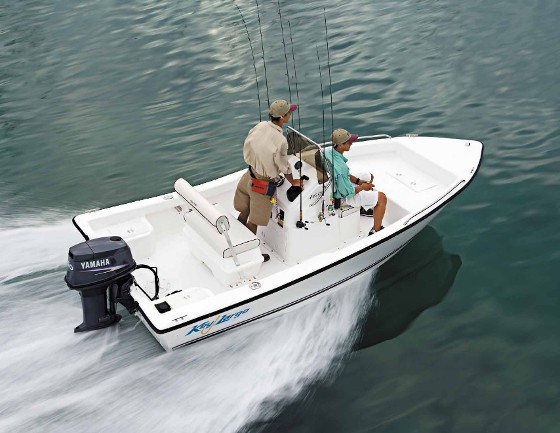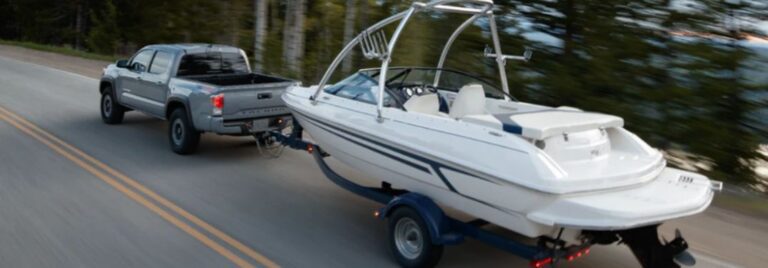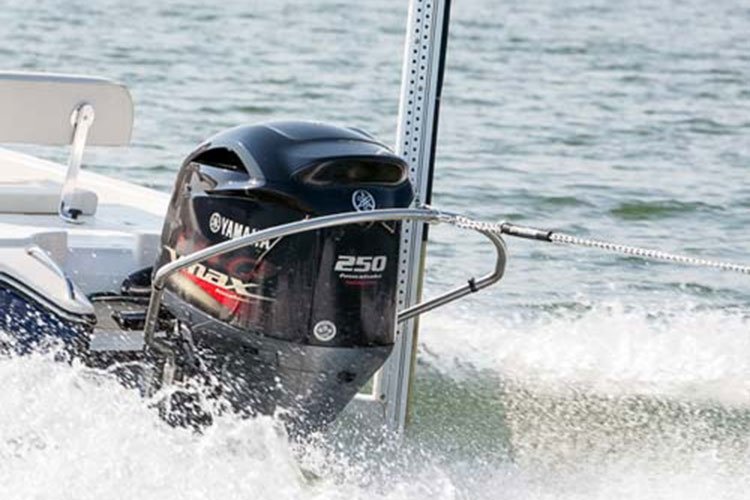What is Dry Weight on a Boat | Weight Definition 2025
The dry weight of a boat is its weight when it is not carrying any passengers, cargo, or water. This is the weight of the hull and all of the boat’s components. The dry weight can be affected by the materials used in construction, as well as the size and design of the boat.
Dry weight on a boat is the weight of the boat when it’s not carrying any water or fuel. This is important to know because it can affect how your boat performs in different conditions. For example, if you’re trying to tow your boat with a car, the dry weight will be much lower than if your boat was full of water and people.
Knowing the dry weight can help you make sure that you’re not overloading your vehicle.
Boat Weight Calculator
When it comes to calculating the weight of your boat, there are a few things you need to take into account. The first is the empty weight of the boat itself. This includes the weight of the hull, decking, engine, and any other permanent fixtures.
The second is the weight of fuel, fresh water, and live bait that you’ll be carrying on board. And finally, you’ll need to factor in the weight of any passengers or gear that will be coming along for the ride.
The best way to get an accurate estimate of your boat’s total weight is to use a boat weight calculator.
These can be found online or in boating magazines and catalogs. Simply enter the make and model of your boat, as well as its length and beam width. Then add in the weights of fuel, fresh water, live bait, and passengers/gear.
The calculator will then give you an estimated total weight for your trip.
Of course, these calculations are only estimates. For a more precise number, it’s always best to weigh your boat before heading out on the water.
That way you can be sure that you’re not overloaded and putting yourself at risk while enjoying a day on the lake or river!
Wet Weight Vs Dry Weight Calculation
The dry weight of an object is its mass when completely dried and cooled to room temperature. The wet weight of an object, on the other hand, is its mass including all water content. To calculate the wet weight vs dry weight, first determine the object’s total mass, then subtract the mass of water it contains.
For example, let’s say you have a 100g block of wood that is 10% moisture by weight. To calculate the dry weight, you would multiply 100g by 0.9 (10% moisture content = 0.9 x 100g). This gives you a dry weight of 90g.
To calculate the wet weight vs dry weight, simply subtract the 90g dry weight from the 100g total mass; this leaves you with a wet weight of 10g.
It’s important to know the difference between wet and dry weights because they can be quite different – especially when it comes to food! For instance, a cup of cooked rice has a wetweight of 240 grams but a dryweight of only 150 grams (a difference of nearly 40%).
So if you’re trying to lose weight or watch your calorie intake, it’s important to pay attention to whether foods are being measured in their wet or dry form.
Does Dry Weight Include Motor
When determining a vehicle’s dry weight, the manufacturer excludes the weight of fluids and the powertrain. This is because the powertrain includes the engine, transmission, driveshaft, and axles – all of which are necessary for the vehicle to move. The fluids also add significant weight to the vehicle, so they are excluded as well.
Boat Weight Kg
Boat weight is an important factor to consider when purchasing a boat. The weight of the boat will affect how the boat sits in the water and how it handles. A heavier boat will sit lower in the water and may be more difficult to maneuver.
A lighter boat will sit higher in the water and may be easier to maneuver. It is important to consult with a professional before making a purchase to ensure that the weight of the boat is appropriate for your needs.
Does Boat Dry Weight Include Trailer
Boat dry weight includes the trailer when figuring the boat’s total weight. The trailer is not included in the calculation of the boat’s length, however. How much does your trailer weigh?

Credit: www.avalonpontoons.com
Does the Dry Weight of a Boat Include the Trailer?
The dry weight of a boat includes the trailer if the trailer is carrying the boat. The National Marine Manufacturers Association (NMMA) defines the dry weight of a vessel as “the weight of the hull, engines, and all permanently installed equipment.” This does not include fuel, water, or other fluids.
What is the Difference between Dry And Wet Weight on a Boat?
The dry weight of a boat includes the hull, engines, fuel, and all other permanent fixtures. The wet weight adds on the water that’s displaced by the boat plus any passengers or gear onboard. To calculate the wet weight, you first need to know the dry weight and then add 10-15% for a typical boat.
The main difference between these two weights is that the wet weight will always be greater than the dry weight because of the added water displacement. This is important to keep in mind when calculating things like trailer weights and storage capacity.
Does Dry Weight Include Motor on Boat?
The dry weight of a boat includes the hull, engines, fuel, water and any gear or equipment permanently installed on the boat. It does not include people or other cargo. The dry weight is used to calculate things like the maximum capacity of the boat and the amount of power required to move it.
What is the Meaning of Dry Weight?
The term dry weight is typically used to describe the weight of an object when it’s completely dried out. For example, a block of wood that’s been soaked in water for days will weigh more than the same block of wood that’s been left to dry out for the same amount of time. The difference in weight is due to the loss of water content from the wet block of wood.
In other words, the dry weight is the true or accurate weight of an object.
This term is also sometimes used to describe theweightof a person who has no excess fluid in their body. Excess fluid can come from things like dehydration, edema (swelling), or malnutrition.
A person’s dry weight would be their ideal or healthy weight if they didn’t have any excess fluid in their body.
How to Use Archimedes' Principle to Find the Maximum Weight a Boat Can Hold
Conclusion
This post discusses the meaning of dry weight on a boat. Dry weight is the weight of the boat without any fluids or people in it. The term is important to know when considering how much your boat can hold and how much water it will displace.






